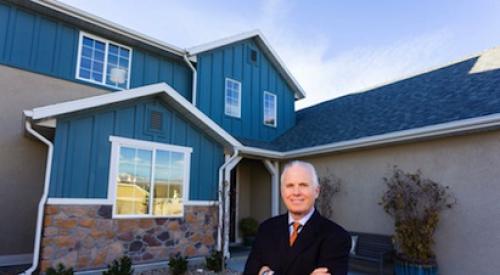Investors were eager to ride the home-building rebound during early 2013 and several big builders obliged with IPOs. But after builders’ common share prices collectively declined from their mid-May highs, going public looks like last quarter’s flavor of the month. Meanwhile, private builder Woodside Homes obtained $220 million in senior unsecured notes through a September debt offering. Woodside Homes CEO Joel Shine recently shared his perspective on the public/private dilemma.
Residential Products Online content is now on probuilder.com! Same great products coverage, now all in one place!
Q: Are you surprised that you’re being asked now what are the advantages of staying private rather than when are you going public?
A: I get asked both questions all the time. I think the discussion of the advantages of being public or private is really two conversations, one of which gets missed. There is the advantage of being large and well capitalized, which can be done privately or publicly, and which is an advantage that we are happy to be enjoying right now. Certainly that gives you better access to the capital markets and a better ability to do land transactions, etc. The biggest difference, for the most part, is right there. They’re saying that public and private is who owns your shares; and for 90 percent of what you do Monday through Friday, day after day, it doesn’t make any difference. There are advantages to both. The public market allows you to create certain types of programs for your employees that are very difficult to violate. Being private sometimes allows you to think a little bit longer term than public companies are encouraged to do by some of the analysts. Each ownership structure has its pluses and minuses. The key is understanding why you’re going public when you do it.
Q: Shares of public (builders’) stock are languishing since the second quarter. Does it seem harder now for companies considering the public move to hit those numbers and move forward with an IPO?
A: I’m not an investment banker. I’m just a home builder. I dare say I get more than an occasional phone call from people in the investment banking community; and the thing about taking a company public is, unfortunately, when you wake up and think about doing that, it’s entirely likely that how the market perceives what is going on in your industry can be more important than how did the company perform, which has always struck me as completely illogical and irrational but nonetheless reality. So a couple of guys got great execution and hit the market at a great time. Then the Feds raised interest rates, some of the markets cooled off, and some analysts ran for cover from these deals. But the interesting thing is not much has changed. You could argue that some of the analysts were unduly optimistic at one point, and some of those same guys are unduly pessimistic at this point. The reality of the day-to-day business of the home builder did not change very much from those two time periods, which by the way is a very compelling argument as one of the problems for being public.
Q: You secured a debt offering that probably is the envy of the industry. Besides your business model and strategy, what else do you credit for helping Woodside secure that deal?
A: I think the look public, act private, make money mantra has served us very well. A part of ‘look public’ that doesn’t get talked about is the behind-the-scenes stuff that your finance and accounting group has to do. We host quarterly investor calls. We’re extremely transparent to our debt equity providers. We know how to give them reports. We never miss a reporting deadline. I understand, having been for a long time on the investment side, that having an investment that simply does what they tell you they are going to do is a very desirable client for somebody loaning money or investing equity. The other part of it is we are pretty deliberate about not getting too far over our feet. We don’t go out and say we’re going to double our company in two years. We don’t reach that hard. That might be a good idea for some people, but I’m a little more conservative than that.
PB Topical Ref













